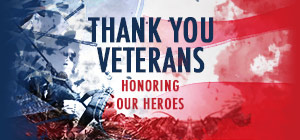One of the things I’ve learned in the 17 years I have spent in senior housing is that people don’t get into this industry for the money; there are much easier ways to earn a living. People get into this industry because they have a passion for serving others. They truly want to make a positive difference in peoples’ lives. I see this play out in our senior living communities every day and it is amazing to watch. There are few industries where you can go home every day knowing you made a positive difference in someone’s life.
“There is no exercise better for the heart than reaching down and lifting people up.”
– John Holmes
“The master in the art of living makes little distinction between his work and his play, his labor, and his leisure, his mind and his body, his information and his recreation, his love and his religion. He hardly knows which is which. He simply pursues his vision of excellence at whatever he does, leaving others to decide whether he is working or playing. To him, he is always doing both.”
– James Michener
There is one problem that you run into, however, like most healthcare industries.
It is heavily regulated.
The Big Problem in Senior Living
All these regulations, policies and procedures in senior housing are important and have a purpose. Complying with the regulations and policies helps prevent bad outcomes, but it also increases paperwork, and to some degree, it can dehumanize situations. When a situation comes up, you can have a tendency to turn to the policy or the regulation and say, “when ‘x’ happens we do ‘y’.”
If this happens long enough, communities and companies can become jaded and handcuffed by these policies, and the people that work in these environments can forget why they originally got into the industry to begin with: to serve others and make a positive difference in seniors’ lives.
“Here is Edward Bear, coming downstairs now, bump, bump, bump, on the back of his head behind Christopher Robin. It is, as far as he knows, the only way of coming downstairs, but sometimes he feels that there really is another way, if only he could stop bumping for a moment and think of it.” Winnie The Pooh
To combat this tendency at Atlas when a situation or problem comes up, we realize that policies and procedures are great, but the best solution to most problems comes from those closest to it. Thus, we involve the whole team when it comes to finding the right solution. In addition to that, policies and procedures are a part of the discussion, but unlike many companies, it is not the center of the discussion.
The center of the discussion is always, “what is the right thing to do in this situation … for this resident, for this associate, for this stakeholder…”
When that is the center of the conversation, and the policies and procedures are just tools to help us accomplish that rather than what the conversation is centered around, it keeps everyone energized knowing they are making a difference in peoples’ lives. It keeps you from getting caught up in the daily grind and is a reminder why you got in the industry in the first place.
Solutions in Senior Housing Are a Team Effort
When you don’t involve your whole team in the solution, you not only have a harder time getting buy-in and implementing that solution, but you very often have the wrong solution.
If you just go to management to solve a problem, you often get even more policies weighing everyone down instead of looking for a real solution to the problem.
I will never forget as a young regional manager I was touring a community and saw a scathing note above the time clock from the Executive Director. It said that anyone who leaves their housekeeping cart out in the hall will be written up and ultimately fired. I asked the Executive Director about the note and they said that they had a problem with people leaving the housekeeping cart in the hall when they went on break or between shifts. When the problem persisted, they thought the note was necessary to warn associates and stop the practice.
I asked the Executive Director if he had asked the associates why they were leaving the cart in the hallway. He had not, so we asked them together.
Here’s what we found out: employees were not intentionally setting their carts out to upset managers. It turns out that the storage area was on the other side of campus. If the employees took the time to return the carts to the storage area, it was going to eat up a large portion of their break time, or the time they needed to be in the apartments cleaning.
With just a little brainstorming, we found a place to store carts on that side of the campus as well and it was no longer an issue. The associates felt listened to and were a part of the solution. They were sure to follow through on keeping their carts stored in the new area and out of the hallway.
This type of approach keeps the team energized, creates mutual respect for everyone on the team, and is a cornerstone in our Atlas culture. Dave Cartland said it best:
“Contrary to popular belief the key to creating a team is not better communication, the same vision, cooperation, or good chemistry. The foundation of a good team goes much deeper, the basis for teamwork is genuine respect for what each person brings to the table. Respect that goes beyond stature, gender, race or economic stature, even beyond ideologies and disagreements, with respect comes all the aforementioned attributes.”
Experience the Atlas difference. Call 877-402-8527, visit our communities or contact Atlas online.

Wyman Hamilton
President and COO






